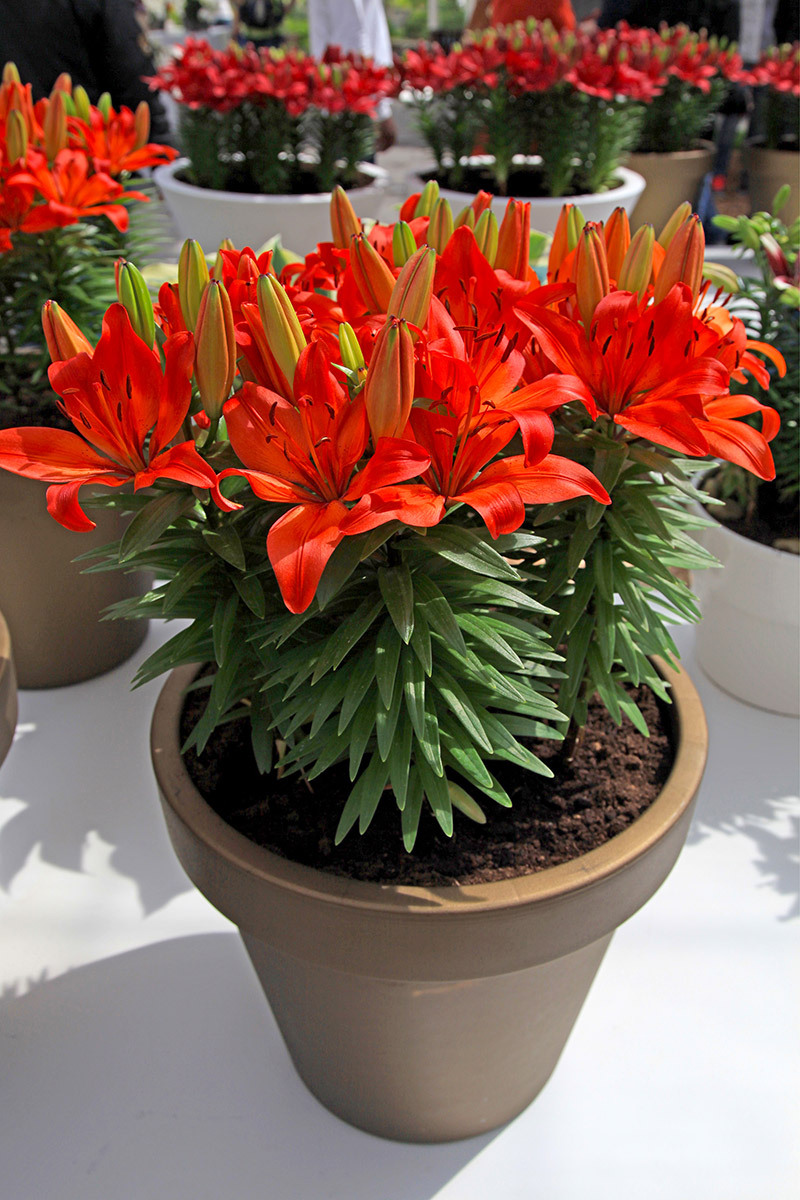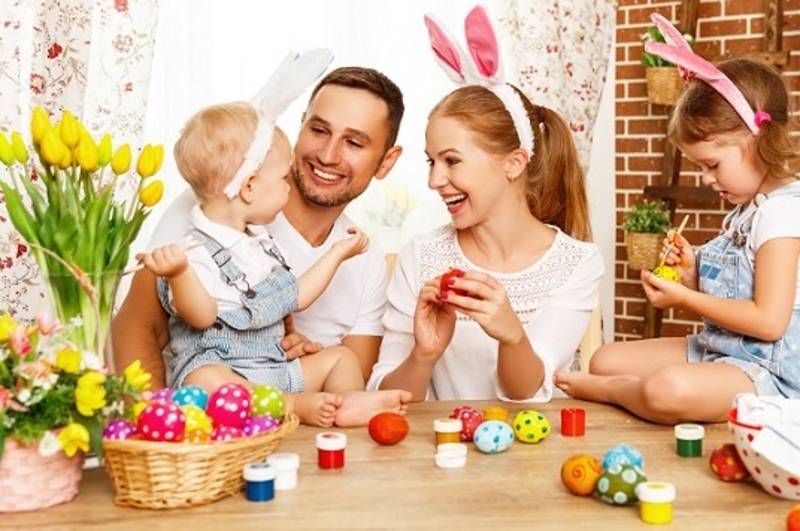Discover how birth month flowers tell stories through their meanings
Posted on 22/08/2025
Discover How Birth Month Flowers Tell Stories Through Their Meanings
Every birthday blooms with a special flower -- did you know that your birth month flower can reveal fascinating stories and hidden meanings? Just as birthstones have long been admired for their beauty and symbolism, birth month flowers add a vibrant, living layer of personality and history to your special day. Join us as we explore how these delightful blossoms speak, sharing tales of culture, emotion, and personal expression.

What Are Birth Month Flowers?
Birth month flowers are specific blossoms traditionally assigned to each month of the year. Much like zodiac signs or birthstones, these flowers carry special significance, with each one possessing symbolic meanings that have evolved through centuries of folklore, tradition, and art.
- January: Carnation and Snowdrop
- February: Violet and Primrose
- March: Daffodil
- April: Daisy and Sweet Pea
- May: Lily of the Valley and Hawthorn
- June: Rose and Honeysuckle
- July: Larkspur and Water Lily
- August: Gladiolus and Poppy
- September: Aster and Morning Glory
- October: Marigold and Cosmos
- November: Chrysanthemum
- December: Narcissus and Holly
Why Birth Month Flowers Matter
Birth month flowers go beyond simple decoration--they tell stories. From expressing love to heralding hope, the language of flowers (known as floriography) lets us communicate messages silently through bouquets and arrangements. Learning about these floral symbols not only gives us new ways to celebrate milestones but also connects us with stories from the past.
January: A Tale of Resilience and Hope
Carnation: The Spirit of Love and Distinction
Carnations are the classic January birth flower. These ruffled, fragrant blooms symbolize admiration, love, and distinction. White carnations convey pure love and good luck, while pink ones are a symbol of a mother's undying love. Historically, they were even worn during important ceremonies as emblems of fascination and gratitude.
Snowdrop: The Brave Blossom
The snowdrop, often pushing through winter's last snows, stands for hope, purity, and new beginnings. In stories and legends, snowdrops are seen as harbingers of better days and the coming of spring.
February: A Story of Modesty and Faithfulness
Violet: Modesty and Loyalty
The violet represents modesty, humility, and faithfulness. Once revered by ancient Greeks as a symbol of love, violets also feature in poems, paintings, and even folk medicines -- an understated flower with a rich and storied past.
Primrose: Eternal Love
Primrose carries the message "I can't live without you", making it a romantic token for February birthdays. Its delicate petals and pastel colors embody youth and newness.
March: Daffodil - The Herald of Renewal
Daffodils are beacons of hope, rebirth, and prosperity. Their bright yellow faces emerge at winter's end, symbolizing optimism and new beginnings, perfectly aligning with the rejuvenation that March brings.
April: Innocence, Purity, and Bliss
Daisy: Innocence and Cheerfulness
The simple beauty of the daisy is tied to innocence, purity, and true love. In Norse mythology, daisies were sacred to Freya, goddess of love, and symbolized childbirth, motherhood, and new beginnings.
Sweet Pea: Delicate Pleasures
Sweet peas evoke gratitude, blissful pleasure, and goodbye, making them a popular parting flower. Their intoxicating fragrance and pastel hues have graced gardens and bouquets for centuries.
May: Lily of the Valley and Hawthorn - Return to Happiness and Hope
Lily of the Valley: Humility and Sweetness
Lily of the valley's tiny, bell-shaped blossoms stand for humility, sweetness, and a return to happiness. In legend and folklore, this May flower is a charm for luck and renewed hope.
Hawthorn: Hope and Protection
The hawthorn flower, celebrated in Celtic culture, is a symbol of protection, love, and hope. Its blossoms signal the coming of summer and rebirth.
June: Rose and Honeysuckle - Stories of Passion and Devotion
Rose: Endless Expression
No flower tells more stories than the rose. It's the quintessential June birth month flower, symbolizing love, passion, beauty, and honor. Different shades of roses add to its language: red for passionate love, white for innocence, yellow for friendship.
Honeysuckle: Devotion
Honeysuckle's sweet scent and entwined vines are a token of devotion and happiness. This flower is often featured in Victorian wedding bouquets for its deep meaning.
July: Larkspur and Water Lily - Positivity and Purity
Larkspur: Lightness and Joy
The larkspur is bold and uplifting, representing positivity, dignity, and open hearts. Ancient beliefs connected larkspurs to warding off evil and inviting joy.
Water Lily: Purity and Enlightenment
Based in Eastern tradition, the water lily symbolizes purity, peace, and enlightenment. It reminds us of renewal and spiritual clarity, making it a meaningful July birthday flower.
August: Gladiolus and Poppy - Strength and Imagination
Gladiolus: Moral Integrity and Strength
The gladiolus stands tall and vibrant, symbolizing strength, integrity, and remembrance. Its name comes from the Latin "gladius" meaning sword, echoing the power it represents.
Poppy: Imagination and Remembrance
The delicate yet bold poppy is a symbol of imagination, eternal sleep, and remembrance. Poppies are often worn to honor heroes and loved ones, reflecting their poignant meaning.
September: Aster and Morning Glory - Wisdom and Affection
Aster: Wisdom and Valor
Famed for their star-like shape ('aster' is Greek for star), these flowers symbolize wisdom, valor, and love. Ancient lore tells of asters being burned to ward off evil spirits.
Morning Glory: Affection
With its brief, beautiful bloom, the morning glory stands for unrequited love and deep affection, encouraging us to cherish fleeting beauty.
October: Marigold and Cosmos - Warmth and Heartfelt Expression
Marigold: Creativity and Warmth
October birth month flowers include the energetic marigold. Their vibrant gold tones evoke creativity, passion, and warmth, while in some cultures, marigolds serve as tributes to departed souls.
Cosmos: Order and Harmony
The orderly petals of the cosmos flower represent peace, harmony, and joyful order. Grown in cottage gardens, cosmos have been enjoyed for centuries.
November: Chrysanthemum - Loyalty and Joy
Chrysanthemums, or "mums," are a universal symbol of loyalty, optimism, and joy. In many Asian countries, chrysanthemums are associated with long life and immortality, while in Europe they often signify sympathy and remembrance.
December: Narcissus and Holly - Hope and Cheer
Narcissus: New Beginnings and Faithfulness
Narcissus blooms in the cold and brings hope at year's end. This flower means faithfulness and new beginnings, echoing Greek legend and winter's promise of spring.
Holly: Protection and Cheerfulness
The holly plant, with its rich green leaves and bright red berries, is wrapped in the tales of Yuletide. It represents protection, merriment, and cheer, making it the perfect December birth month flower.
How Birth Month Flowers Connect Generations
- Traditions: Many cultures use birth month flowers in baptisms, weddings, and funerals, connecting people to their ancestors through generations.
- Personalized Gifts: Gifting someone their birth month flower is a thoughtful way to honor their history and personality.
- Storytelling: Naming a child after a birth flower or growing it in one's garden continues a legacy of meaning.
Why Learn About the Meanings Behind Your Birth Month Flower?
Understanding the storytelling power of birth month flowers offers more than beautiful bouquets:
- Personal Reflection: Provides insight into your life's journey and traits.
- Connection: Deepens your bond to family, friends, and culture.
- Creative Inspiration: Inspires poetry, art, and meaningful gift-giving.
Choosing and Celebrating Your Birth Flower
- Display in Your Home: Fresh or dried, let your birth flower add personal style and energy.
- Bouquet Gifting: Create bouquets using birth flowers for birthdays, anniversaries, and milestones.
- Gardening: Grow your birth flower for a year-round reminder of meaning and beauty.
- Symbolic Jewelry: Wear your birth flower as a pendant, brooch, or ring.
- Art and Decor: Commission or create artwork highlighting your special flower.

Birth Month Flowers in Modern Life
Today, birth month flowers are featured in everything from tattoos to fragrances. They inspire baby names, seasonal celebrations, and modern wellness rituals. Across the world, these botanical messengers continue to tell stories -- expressing what words alone cannot.
Conclusion: Let Your Birth Month Flower Tell Your Unique Story
Each birth month flower is a living tale -- a symbol carrying centuries of meaning but also uniquely yours. Embrace your birth flower's history, symbolism, and beauty to let it inspire and connect you. Whether you're arranging a personal bouquet, searching for a meaningful gift, or simply seeking a sense of identity, let birth month flowers tell your story through their enduring meanings.
Frequently Asked Questions
-
Q: How do I find my birth month flower?
A: Refer to our list at the top of this article! Each month has assigned flowers, often with local variations. -
Q: Can I have more than one birth flower?
A: Yes! Some months feature both primary and secondary birth flowers, each with unique symbolism. -
Q: How can I use birth month flowers in gifts?
A: Include them in bouquets, jewelry, artwork, or written notes. They add thoughtfulness and personalization to any token.
Now that you know how birth month flowers tell stories through their meanings, how will you let your story bloom?
Latest Posts
Discover how birth month flowers tell stories through their meanings
Reveal the Petal That Complements Your Character Perfectly
Master Flower Preservation with These Three Easy Techniques





